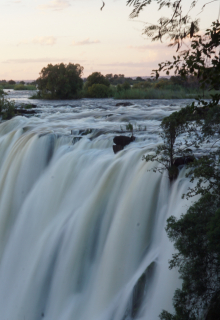The programme takes a fully integrated approach to nature and culture from the outset, focusing on:
- setting and testing the leading standards for conserving sites and ensuring their contribution to communities and sustainable development through engagement with World Heritage;
- providing high-profile and widely-translated advice and resource materials on conservation policies and practices, notably by integrating the ICCROM-led Managing Cultural World Heritage manual with the IUCN-led Managing Natural World Heritage manual;
- establishing a network of internationally-recognized learning sites (including World Heritage sites demonstrating leading practice) that can provide platforms for learning and capacity building;
- building international networks between nature and culture practitioners and institutions that link on-the-ground practice with leadership at the international, regional, national and local levels; and
- providing training events, exchanges and other capacity-building activities to support the work of site managers and stakeholders and national heritage services in diverse States Parties.
The programme is composed of four projects:
The programme conducted a mid-term evaluation in 2020 focusing on:
- current progress towards meeting the intended goals and objectives of the leadership programme and the likelihood of achieving the overall targets by completion; and
- suggested improvements and lessons learned to inform thinking about leadership support.
The evaluation examined the programme's progress on aspects of relevance, effectiveness, impact, efficiency and sustainability. It took place from March to July 2020 and was conducted by the E.C.O Institute for Ecology.
The results from the evaluation and the response from the programme management can be found here:

